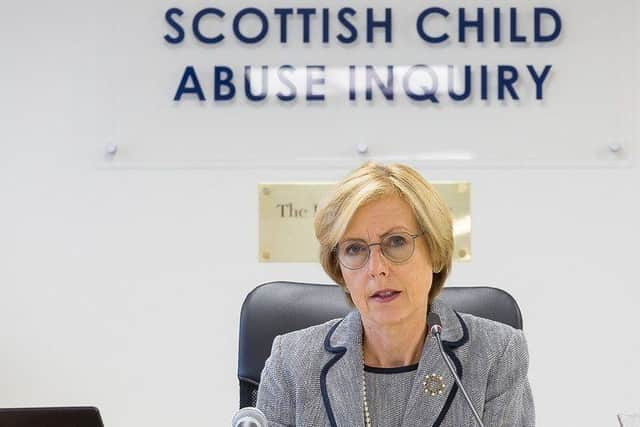Findings of the Scottish Child Abuse Inquiry will be key to whether 'mandatory reporting' is introduced
On the face of it, introducing mandatory reporting for child sexual abuse seems obvious.
After all, how could anyone be against alerting the authorities to such horrific crimes against vulnerable children?
Advertisement
Hide AdAdvertisement
Hide AdWell, some say there are actually good reasons not to go down the route of making it a criminal offence for teachers, doctors and others who work with children to fail to report concerns.


It is argued that these include the risk that it discourages young people who might not be ready to involve the authorities from confiding in adults.
Other suggestions have been that it creates a culture of reporting rather than acting, and that a rise in reports could overwhelm stretched authorities.
These are some of the reasons why both the UK and Scottish governments have previously been cautious about implementing the change, despite the system being in place in much of the rest of the world.
However, support for mandatory reporting is growing in the wake of harrowing evidence provided to long-running child abuse inquiries.
These inquiries have heard countless examples of professionals failing to act on abuse, often because they were trying to protect the reputation of an organisation or because junior staff felt unable to challenge the verdict of bosses.
In England and Wales, a survey of thousands of victims and survivors found 88.6 per cent said that they would like to see mandatory reporting introduced.
Following recommendations from the inquiry south of the border, the UK Government is consulting on a form of mandatory reporting, although campaigners fear the model proposed does not go far enough.
Advertisement
Hide AdAdvertisement
Hide AdIn Scotland, it has emerged that the most senior child protection officials in the country have also been discussing the introduction of new laws.
It seems likely that SNP ministers will wait for the findings of the Scottish inquiry before taking a final decision, particularly given it has cost more than £70million since being established in 2015.
But if Lady Smith, the Scottish inquiry chair, reaches a similar conclusion to her counterpart in England and Wales, Professor Alexis Jay, then it is likely to be a case of ‘when’, not ‘if’, mandatory reporting is introduced in Scotland.
